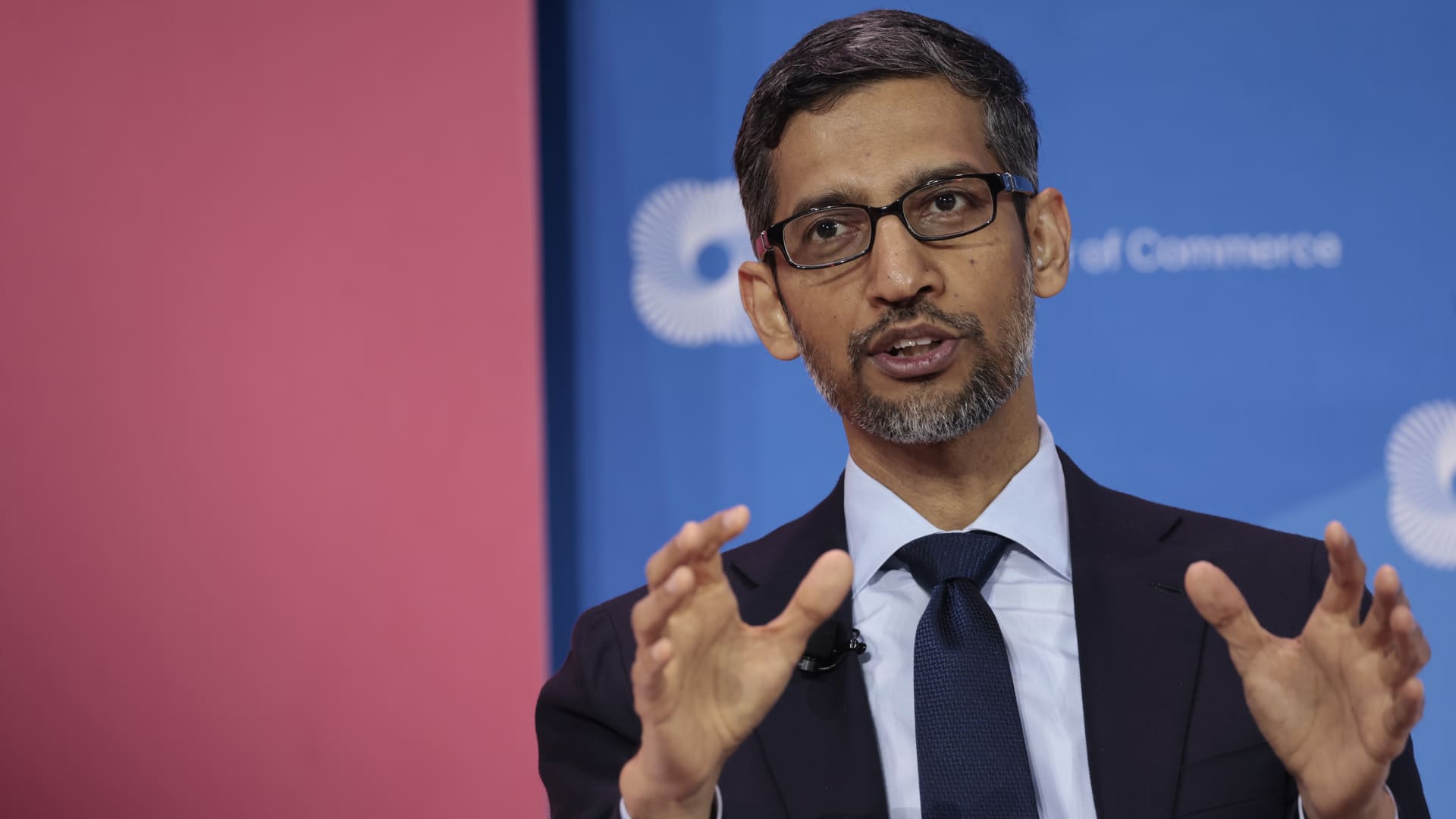Google CEO tells employees some of company’s top products ‘were not first to market’ as A.I. pressure mounts

Pichai asked employees to spend two to four hours of their time on Bard, adding that next week the company will send more detailed instructions. He reminded staffers that Google has not always been the first to release a product, but that hasn’t hampered its ability to win.
“Some of our most successful products were not first to market,” Pichai wrote. “They gained momentum because they solved important user needs and were built on deep technical insights.”
Numerous search engines existed before Google hit the market in 1996, and yet they almost all vanished as Google came to dominate the industry. In mobile, Google didn’t introduce Android until years after the BlackBerry existed, and it also followed companies like Palm. Now, Android is the most popular mobile operating system in the world.
Still, Google parent Alphabet was slammed by investors last week after the company was upstaged by Microsoft’s announcement of a ChatGPT-integrated Bing search engine. Google unveiled its conversation technology Bard, but a series of missteps around the rushed announcement pushed the stock price down nearly 9%.
At the time, Pichai issued a rallying cry, asking for “every Googler to help shape Bard and contribute through a special company-wide dogfood,” referring to the practice of using its own product before launching it. Employees criticized Pichai for the mishaps, describing the rollout internally as “rushed,” “botched” and “comically short sighted.”
Pichai’s latest email to employees went on to say that “this will be a long journey for everyone, across the field.”
“The most important thing we can do right now is to focus on building a great product and developing it responsibly,” he wrote.
In December, shortly after OpenAI released ChatGPT to the public, Google executives warned that they had to be deliberate in introducing AI search tools because the company has much more “reputational risk” and is moving “more conservatively than a small startup.”
Pichai said on Wednesday that the company has thousands of external and internal people testing Bard’s responses “for quality, safety, and groundedness in real-world information.”
“AI has gone through many winters and springs,” Pichai wrote. “And now it is blooming again.” He said it’s time to “embrace the challenge and keep iterating.”
“Channel the energy and excitement of the moment into our products,” Pichai wrote. “Pressure test Bard and make the product better.”
WATCH: CNBC’s full interview with Alphabet CEO Sundar Pichai